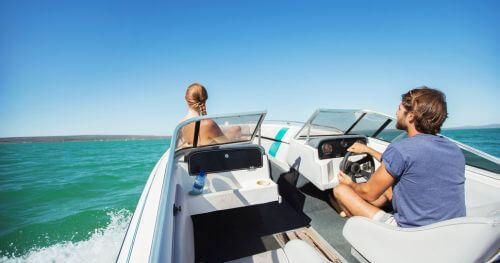
Florida is known as the boating capital of the world. In 2022, the Florida Fish and Wildlife Conservation Commission (FWC) announced the Sunshine State had passed one million registered boats, with 74,622 in Miami-Dade County alone.
The growing number of boaters reinforces the importance of safe and responsible boating. If you are a new boat operator or plan to become one, ensure you meet all legal and safety requirements before boating in Miami.
Licensing Requirements for Florida Boat Operators
According to the Florida Department of Highway Safety and Motor Vehicles (FLHSMV), there is no boating license requirement in Florida. However, state laws do require boaters to meet specific requirements to operate a boat on public waterways.
If you were born on or after January 1, 1988, and intend to operate a motorized vessel of 10 horsepower or more, you must complete one of the following:
- An approved boating safety education course and possess a boating education ID card and a photo ID card while boating.
- A Temporary Certificate exam and possess a valid certificate while boating.
What are the Required Boater Safety Courses?
You must take an approved Boater Safety course to operate a vessel in Florida legally. To meet this qualification and receive your ID card, you can choose in-person or online-based classes:
- Classroom-based boating safety courses: These are in-person classes where you’ll learn the basics of boat operation and terminology, how to navigate safely, avoid accidents on the water, and operate in different environments and weather conditions. Classes are taught by experienced instructors and structured with demonstrations, group activities, and Q&A sessions.
- Online boating safety courses. Online classes allow you to learn the basics of boating at your own pace from the comfort of your home. They function on any Internet-connected device and feature various interactive elements, such as infographics, videos, and quizzes.
Boating Requirement for Non-residents
If you are a non-resident and have already completed a boating safety course in another state, you may be exempt from taking a course in Florida. According to the FWC, you must meet the following requirements:
- Your out-of-state safety course or equivalency exam must be National Association of State Boating Law Administrators-approved and meet or exceed Florida’s requirements.
- You have an out-of-state ID card or certificate identifying you as having completed that course or exam.
Safety Equipment Regulations
The safety tools and equipment you must carry in Florida depend on your vessel’s length. The FWC states that the following safety equipment is required per Florida law:
- Personal flotation devices (PFDs): Each vessel must have at least one functioning S. Coast Guard-approved PFD of the right size for each person onboard. Any 16’ or longer vessel must have at least one additional throwable Type IV PFD for falls overboard.
- Child PFDs: All children under 6 must wear a Type I, II, or III PFD when onboard a 26’ or shorter vessel. An exception applies if the boat is anchored, moored, ashore, or aground.
- Fire extinguishers: You must carry at least one marine fire extinguisher if your vessel has a built-in fuel tank or an enclosure where gas fumes can accumulate. The minimum number depends on your vessel’s length.
- Sound devices: Your vessel must possess a referee’s whistle, air horn, bell, or another efficient sound signaling device.
- Distress signals: All vessels must carry at least three visual distress signals approved for nighttime use. Vessels over 16’ must also have at least three signals approved for daytime use or three combination day/night signals.
Boating Laws in Florida
In addition to boater safety courses and required equipment, you must follow several Florida laws to operate your vessel in Miami. These legal responsibilities include:
- Be at least 14 years old to operate a personal watercraft (PWC), even if you possess a boating safety ID card.
- If your vessel has a motor, it must be registered and titled. If it is non-motor-powered, you don’t need to register it, but you may need to have it titled if it is over 16 feet long.
- The FWC considers any violation of Federal Navigation Rules to be a violation of Florida’s state boating laws. For example, driving under the influence of alcohol is considered negligent under Statute 2303; in Florida, a BAC of .08 or higher when operating a boat is also considered negligent and can carry criminal penalties.
Aigen Injury Law Stands with Injured Boaters
Prioritizing boating safety by following all Florida regulations and laws is vital to the well-being of everyone in the water. If a reckless boater injures you or a loved one while you’re out on the water, the Miami boating accident lawyers at Aigen Injury Law can help hold them accountable and seek compensation for your damages.
Our team can help you file a claim for your boating accident case, provide expert legal advice, and obtain the fair settlement you deserve. Contact us today for a free consultation.